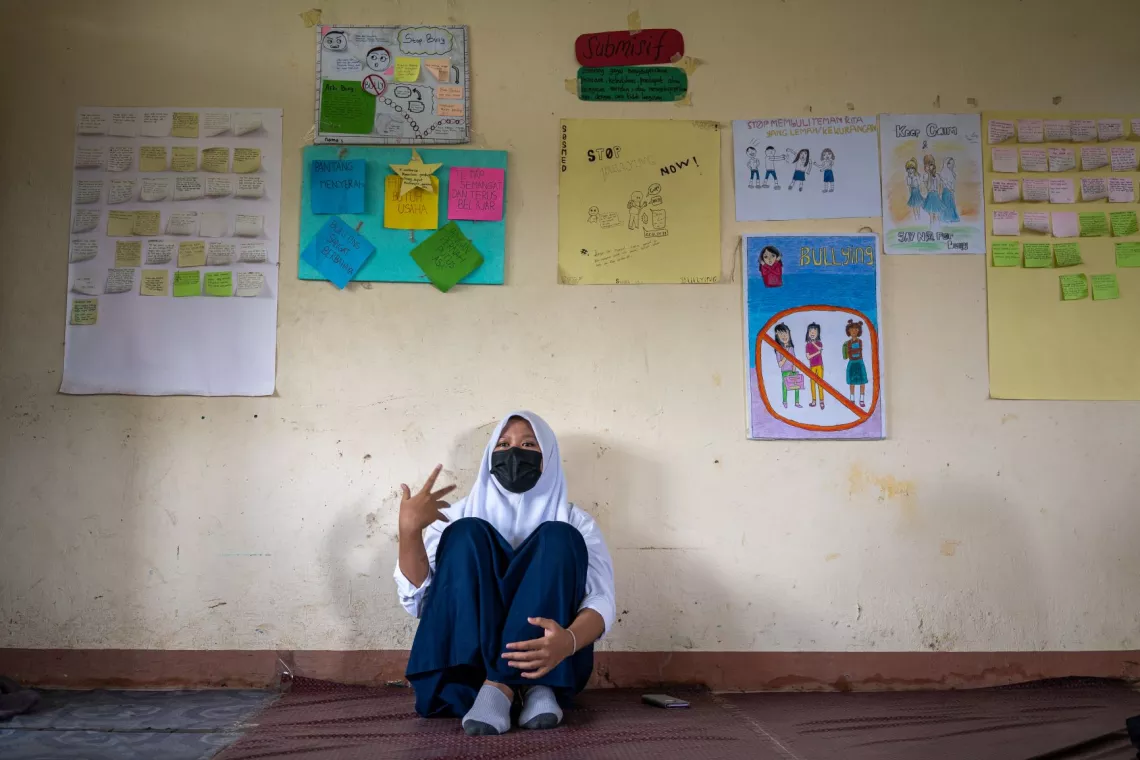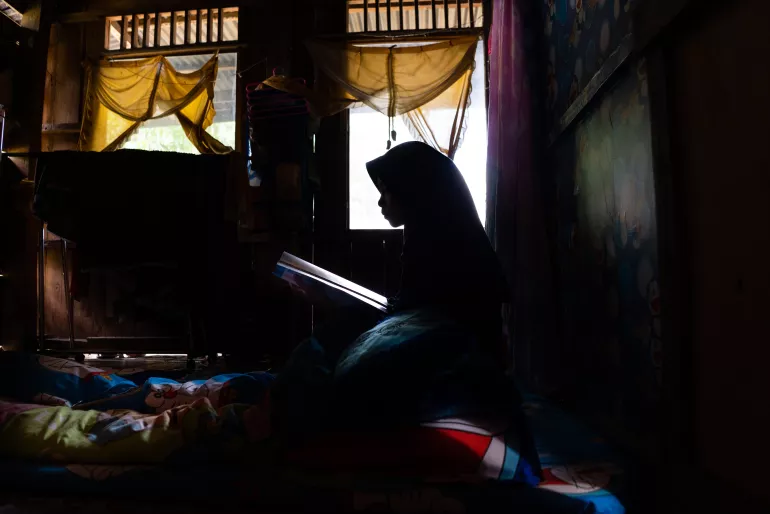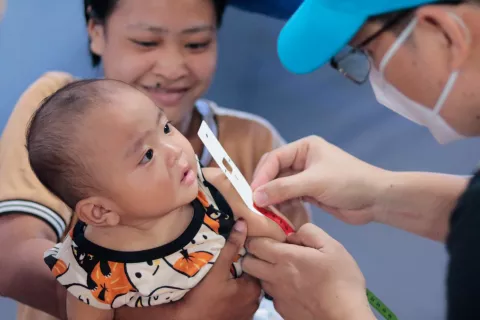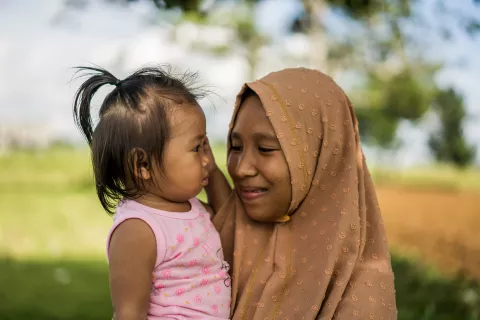Young people in East Asia and Pacific face significant mental health challenges, which have become even more apparent since the COVID-19 pandemic. Adolescence is an important time in our lives, a time in which it is essential to spend time with peers, learn new things, explore and have fun. The pandemic caused major disruptions for many young people in the East Asia and Pacific region, and evidence now shows the impact on their mental health.
More than 1 in 10 girls and almost 1 in 7 boys aged 10-19 years have a mental health disorder, and shockingly, suicide is the second-leading cause of death among girls, and the third leading cause of death among boys aged 15-19 years
Mental health is a topic not many people are familiar with...
People regard mental health as being mad, crazy and so on
At UNICEF East Asia and Pacific (EAP), we wanted to know more about their needs so that we could develop programmes both for and with this age group to support them in ways which are meaningful and appropriate. We needed to find out what they perceived as the main causes of their mental health challenges.
UNICEF EAP and Western Sydney University consulted 582 young people in Thailand, Fiji, Malaysia and Indonesia and invited them to share their experiences. We asked them about their understanding of mental health, and more importantly, what stopped them from accessing the support they need1. We were also very keen to hear from them about digital technologies and social media and its impact on their mental health.
We asked them:
-
How do young people in East Asia and Pacific perceive and experience mental health in their day-to-day environments?
-
What are the face-to-face and online drivers of adolescent mental health outcomes, including broader socio-structural factors? What do young people perceive as the barriers and enablers of their mental health?
-
Social media can be a positive source to access support. It is anonymous, and accessible all the time.
-
They need support to find resources which are safe and truthful.
-
Everyone needs to be able to access the internet.
-
Family and friends are the biggest sources of support.
-
The cost of living, violence and climate change were identified as stressors.
-
There is need for collective responsibility to ensure that everyone can find help when they need it, whether it be online, in person, at school, or at home.
-
There is a need to help everyone understand that there is no health without mental health.
-
There is nothing to be ashamed of if you experience mental health struggles.
There are online anonymous pages where you can share about your thoughts with someone without anybody knowing who you are

When I hear mental health, I think of something
to do with the health of emotions and feelings
What stops young people from getting help when they need it?
-
They felt that language challenged their ability to express their emotions or experiences and they would not be taken seriously if they did open up to someone.
-
They are worried about speaking to their parents who may not take them seriously.
-
Stigma is still an issue for many, and fear of being judged prevented them from asking for help, even if they knew where to go.
Key Asks:
-
Young people call on technology providers to ensure their products, services, and platforms are safe and supportive of young people’s mental health.
-
There is a need to identify and provide targeted mental health support to those young people who experience entrenched inequality.
-
Adolescents should be able to access support without the permission of parents or caregivers, especially if they fear stigma related to mental health.
EDUCATE PEOPLE! [about] what is mental health
[and explain] it is important health!
Young people know what they need to feel better, and to feel supported. This research brought to light the key areas of support and barriers to accessing mental health services for young people across East Asia and the Pacific.
However, it is imperative that we involve them as equal partners in the decisions that affect them, including co- designing accessible, safe services to help their agency, resilience and mental well-being.
NOTHING ABOUT THEM, WITHOUT THEM!
Read the full report: Mental Health: A Pain That Resides in the Mind







